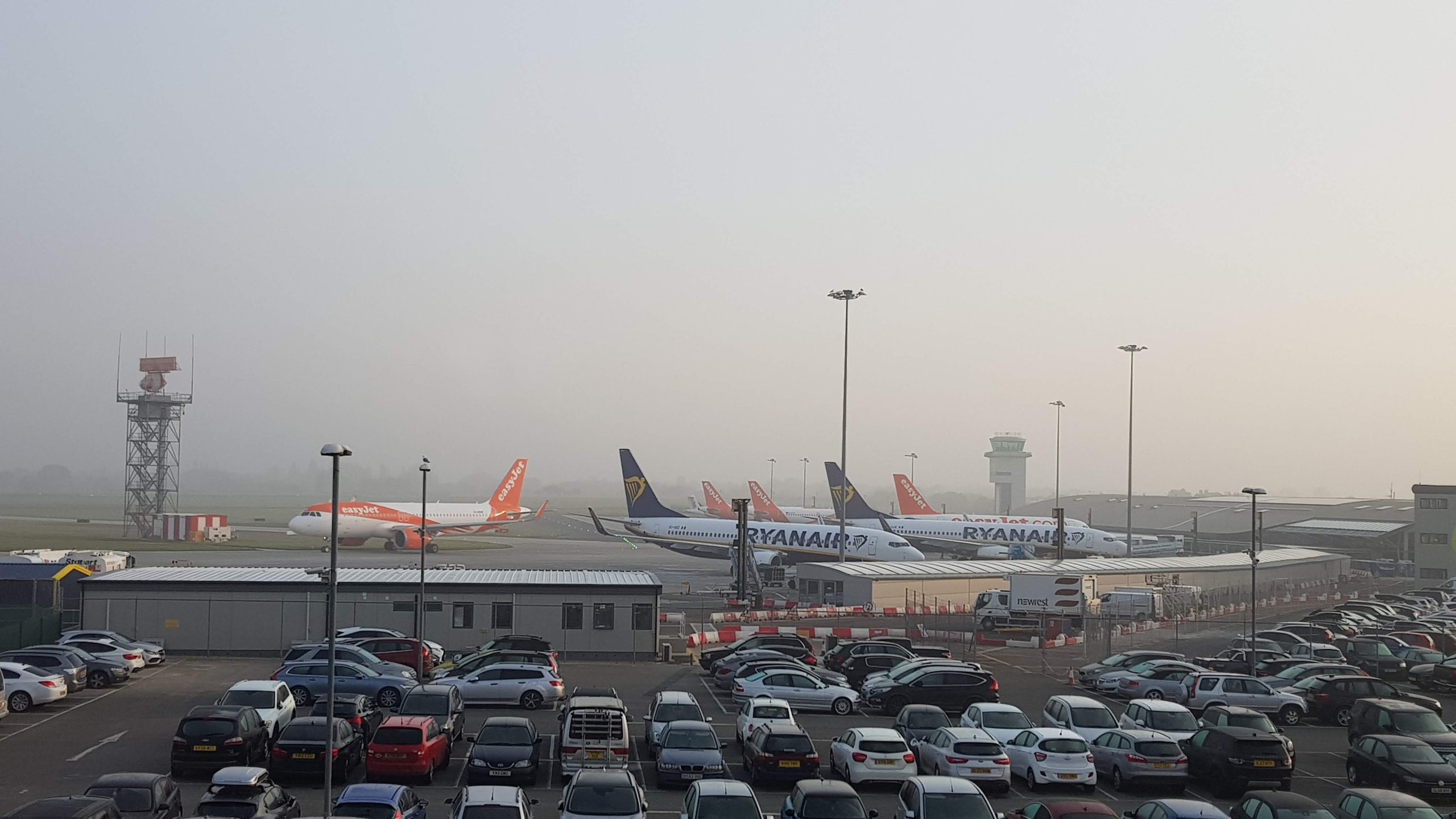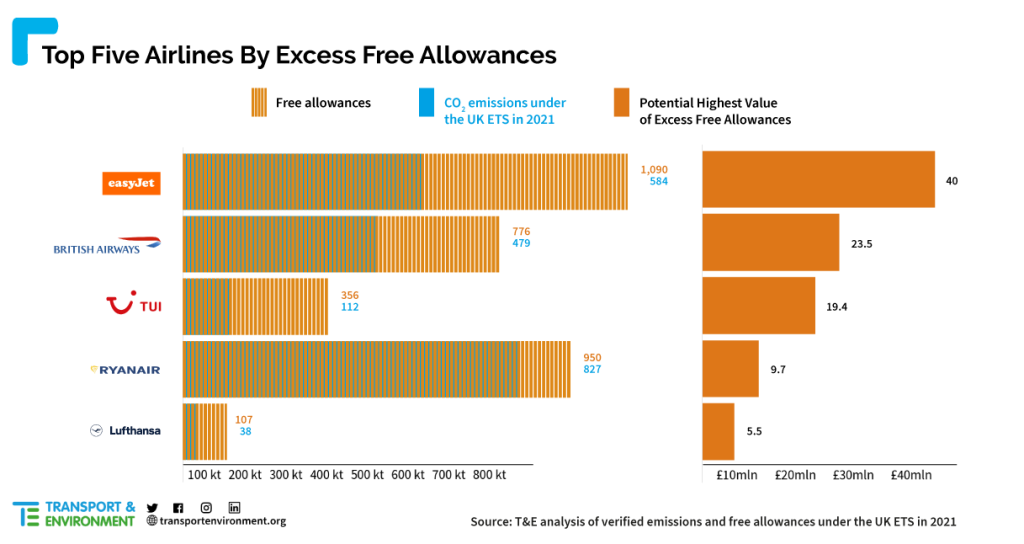
Secret Subsidies: How the Government is gifting free money to airlines via its carbon market
UK airlines were allowed to pollute for free and given subsidies via the UK’s flagship scheme to reduce carbon emissions, new study finds.
The UK government is giving airlines so many free pollution permits through the carbon market for aviation that they don’t have to pay for any of their climate-warming emissions. Airline polluters received £242 million worth of free CO2 ‘allowances’ last year [1], according to a new study by green group Transport & Environment (T&E). The UK’s carbon market is supposed to reduce carriers’ emissions under the polluter pays principle.
The 4.4 million free permits dwarfed the 3.4 million that carriers had to surrender under the UK Emissions Trading Scheme (UK ETS), the study shows. Airlines could have retained the 0.9 million excess allowances for future years or sold them back onto the UK ETS secondary market. Had these excess allowances been sold, airlines could have banked up to £72 million, the study finds.
Matt Finch, UK director at T&E, said: “The government put in place a scheme meant to reduce aviation emissions, yet it grants get out of jail free cards. Last year was doubly absurd: airlines were allowed to pollute for free, and on top of that the Government awarded excess free allowances that the airlines could sell. That’s a gap in the public coffers needed for public services that taxpayers had to fill instead.”
EasyJet, Ryanair and British Airways were the highest beneficiaries of the free pollution permits. This comes after British Airways and easyJet received significant government bailouts during the COVID pandemic.

The UK ETS is a cap and trade scheme that seeks to reduce carbon emissions from polluting industries such as aviation. Under the scheme, one tonne of carbon equals one allowance. Airlines are obliged to surrender allowances for the carbon they produce from all UK-departing flights to other UK destinations, the European Economic Area, and Gibraltar.
But, the UK ETS awards free allowances to airlines, enabling them to pollute free of charge. In theory, this is to mitigate against “carbon leakage” – potential additional emissions created by airlines that avoid paying for ETS allowances by changing their routes. However, studies have shown that carbon leakage in aviation is minimal to non-existent.
T&E warns that most carbon emissions from UK flights come from long haul flights – which are not covered by the scheme. As a result, airlines do not pay for most of their pollution. Only 14% of British Airways’ emissions were covered by pricing policies in 2019. T&E calls for an extension of the scope of the UK ETS to all departing flights, so as to properly tax aviation’s carbon emissions.
“The UK Government has a golden opportunity to fix the problems of the carbon market for aviation, and apply the polluter pays principle. Free pollution allowances in aviation never made sense, nor did limiting the scheme to just one continent. If the Government wants to be seen as a climate leader, ending free allowances and applying the scheme to all departing flights is the only option”, concluded Matt Finch.
Note:
[1] Using the average 2021 UK ETS price of £55.59 per tonne of carbon, these allowances were worth £242 million.